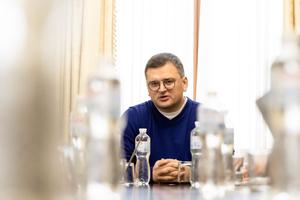Concerns Linger Over Fairness of Vatileaks Trial
Critics assert the pool of defendants’ lawyers is too small

Doubts persist about the fairness of a trial of five people charged with leaking confidential Vatican documents despite recent assurances from the Holy See.
In a statement Monday, Holy See Press Office Director Father Federico Lombardi addressed various concerns, one of which was the selection of lawyers chosen to represent the defendants.
Critics have been arguing that the list of lawyers eligible to work in the Vatican courts is too small, excluding attorneys best suited to cases such as these, and so not offering the defendants the fairest trial.
Father Lombardi acknowledged in his Dec. 7 statement that all those engaged in judicial roles at the Vatican “may not be recruited by way of a public selection procedure open to the citizens of the State, as normally occurs in other States”.
But he insisted they are selected from “among professionals of the highest level, with consolidated experience and a recognized reputation (as may be seen in their curricula vitae, which can be consulted via internet). Indeed, they are all professors in Italian universities.”
He further asserted that all lawyers working at the Vatican are required to have a “specific qualification” for admission to practice in the courts, and so it is “unsurprising that a lawyer able to practice in Italy may not be able to do so in Vatican City State, just as he or she would not be able to practice in Germany or France.”
Lawyers at the Vatican also possess “a second degree in canon law and a further diploma conferred following a three-year specialist course at the Roman Rota,” therefore guaranteeing a level of “professionalism and competence”, Father Lombardi said.
But the statement failed to appease some critics who argue that what matters above all — especially in this case — is expertise in penal law, not canon law or legal issues more commonly associated with the Church. Professor Ugo Ruffolo, a prominent Italian attorney, is one such critic who believes the list of Vatican accredited lawyers is far too limited.
“Normally, a person in every nation has the right to see a lawyer of their choice, and sometimes from different countries,” Ruffolo told the Register. “In Africa, lawyers can come from Commonwealth nations, so an English lawyer could be chosen for example." In Italy, European lawyers can represent clients there, but Ruffolo said the Vatican's pool of lawyers is too restricted. "Most of them are Italian and are not experts in criminal law,” he said, adding that they tend to specialize instead in family law or canon law.
That seems to be the case for at least three of the five attorneys: Emanuela Bellardini, representing Msgr. Lucio Vallejo Balda, is an expert in canon law; Rita Claudia Baffioni, representing Nicola Maio, specializes in marital law and annulments, and Agnese Camilli, representing Francesca Chaouqui, graduated in jurisprudence and canon law. Lucia Musso and Roberto Palombi, respectively representing journalists Emiliano Fittipaldi and Gianluigi Nuzzi, have plenty experience of serving clients in ecclesiastical legal settings but appear to have little or no experience in media law.
Ruffolo and others would have liked to see Italian lawyers Caterina Malavenda and Giulia Bongiorno, both widely known to have good reputations and experience in defending cases like these, representing some of the defendants.
“It’s not really a problem of strict law, it’s a problem of opportunity,” said Ruffolo, meaning the defendants having a less than reasonable chance of having a fair hearing. “It would better not to have such limits,” he added.
After Pope Francis amended the Vatican’s legal code in 2013 to criminalize the stealing of confidential documents following the stealing of classified documents from Benedict XVI's household in 2012, the Holy See, in hindsight, might have been wise to train lawyers experienced in such cases to work in the Vatican’s courts. But then they probably never thought another Vatileaks case would emerge so soon after the last one.
These weaknesses notwithstanding, the Vatican has taken various steps to make the trial fairer. These include increasing the length of time for defendants to prepare their case, and allowing them to summon some of Pope Francis' closest advisers to testify, such as Vatican Secretary of State, Cardinal Pietro Parolin.
- Keywords:
- holy see
- judicidiary
- vatican
- vatileaks


















